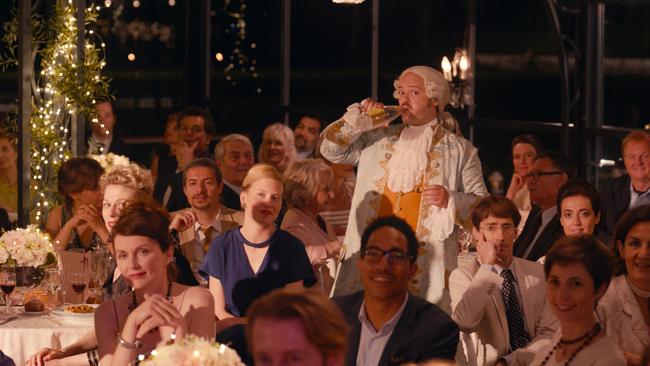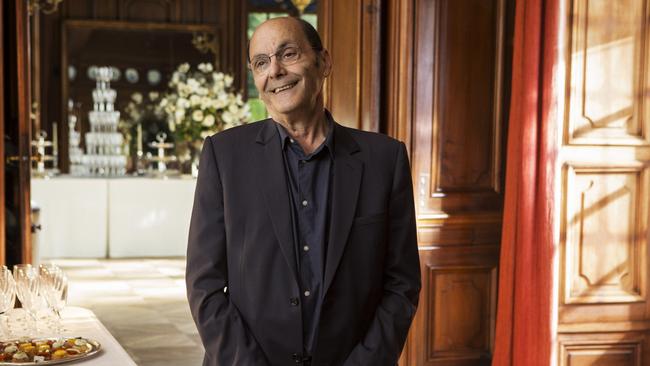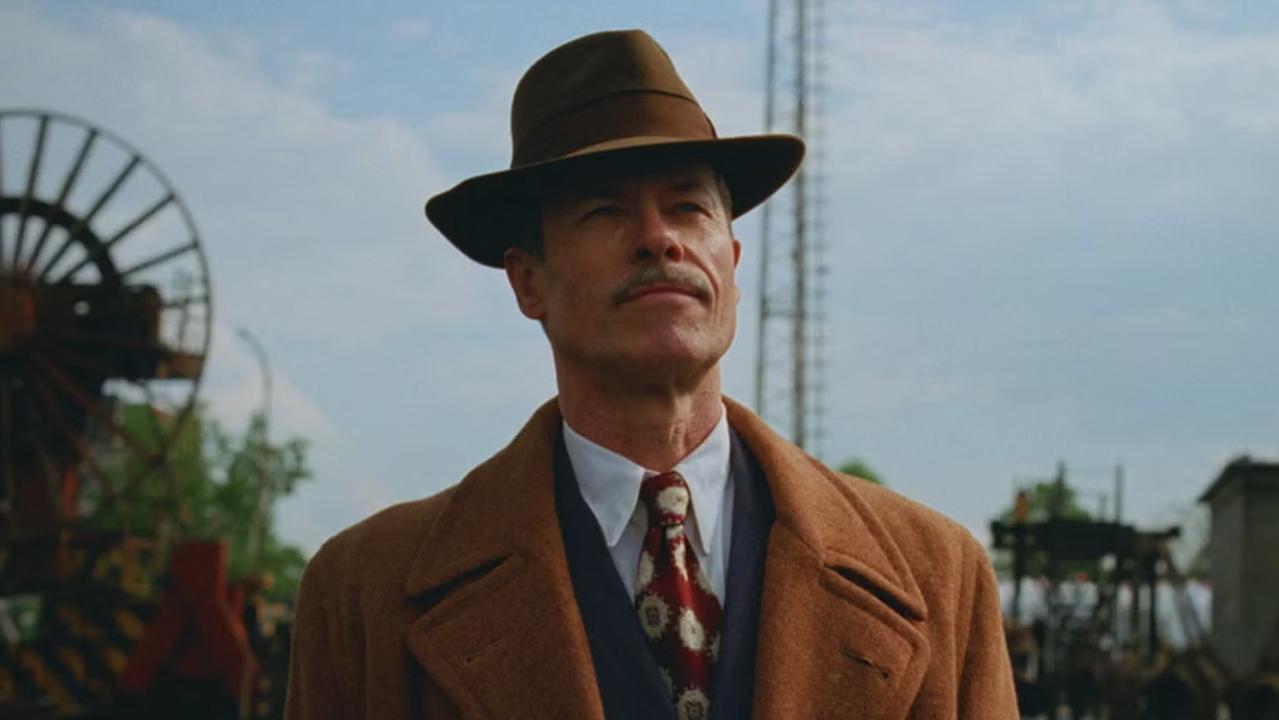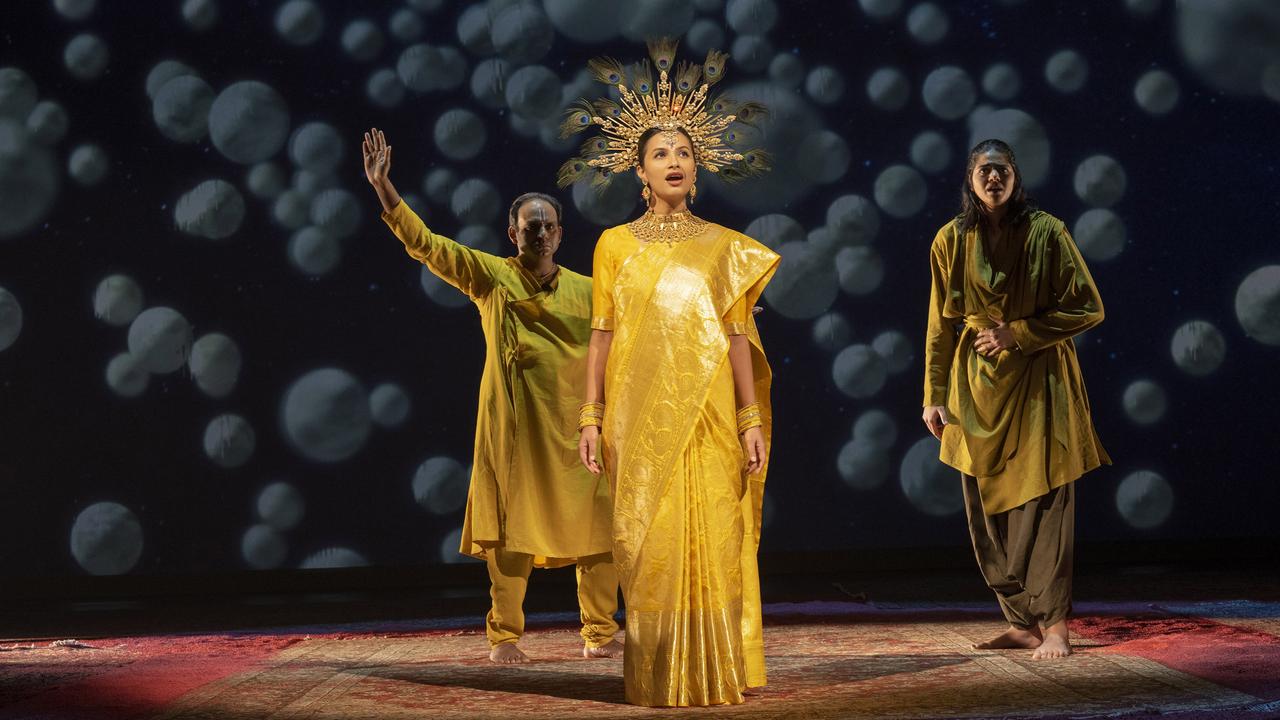C’est la vie: how film-makers convinced Jean-Pierre Bacri to say yes to role
Actor Jean-Pierre Bacri took nine months to sign on to the ensemble comedy C’est la vie.

French audiences know Jean-Pierre Bacri as an actor, writer and director, a performer with a comic gift who often plays sardonic, cynical figures. Filmmakers who want to work with him, says Eric Toledano, are aware of something else, too: “He says ‘no’ faster than anyone.”
Toledano and his writing and directing partner Olivier Nakache were keen to work with Bacri, whose acting skills they greatly admired. But they knew he turned down a lot of roles. “You send him a script, he’ll always read it, and within 24 hours he says no.” So for their film C’est la vie! they took a different approach.
C’est la vie! is an ensemble comedy in which they envisaged Bacri as a veteran caterer who has presided over elaborate weddings and parties for more than 30 years. The film revolves around a wedding at which nothing goes according to plan. When Toledano and Nakache met Bacri for coffee, he asked them about their movie idea. They told him they simply wanted to have a chat.
They did not reveal right away that they were working on the screenplay, Toledano says. When they showed him a script, they told him they hoped he would contribute to the writing process as well. He agreed to this, although, Toledano recalls, he never committed to a role in the film. He gave them notes and feedback, and at the end of every meeting he would remind them, “but I haven’t said yes”. It took nine months before he officially came on board.
Max, the figure Bacri plays in C’est la vie!, is somewhat different from the roles he is generally associated with: there’s the sardonic, imperious side, but there’s also “a little more generosity”, Toledano says.
Max knows his job back to front, but he has had to make a few compromises, often against his better judgment. Despite being a perfectionist, he is prepared to hire an old friend, the ridiculously incompetent photographer Guy (Jean-Paul Rouve) when no one else will give him a job. He may be an experienced caterer, but he has problems with autocorrect. He and his staff have personal issues that interfere with their professional judgment. And nobody likes the ridiculous costumes the waiters are expected to wear.

Toledano and Nakache had worked in hospitality when they were young, so they had experiences to draw on. And they saw the big-ticket wedding — a production or a spectacle that involves feverish activity behind the scenes — had things in common with a film set. They were concerned, above all, that the script should feel true to life rather than adhere to familiar comic tropes.
“I can’t bear the predictable,” Toledano says. “You have absurd situations depicted realistically: you push things too far, but it’s all done in an everyday fashion.” They chose to focus on the hospitality workers rather than the wedding party. And it was important, Toledano says, that the characters represented a range of people with different kinds of lives, interests and backgrounds. In a way, “you’re taking a snapshot of contemporary France”.
Their working relationship with another of their ensemble members, Vincent Macaigne, also began over coffee. Macaigne was a little surprised to hear from them, he says, because he thought they inhabited different cinematic worlds. “But we got on very well straight away,” he says. They explained to him how they worked and it struck him that they had more in common than he realised. “This proved to be even more true when it came to shooting.”
For successful commercial filmmakers, he says, “they work like they don’t have money” — and he means this as a compliment. He felt as if he were working in the independent sector. “They are very free, very creative, they like to improvise.” You can easily assume, he says, that because they have a track record of hits, they are making films with an eye on the audience. “But they just create things that they like. They are real filmmakers, they have a vision and they try to explore it, they take the code of comedy and do other things with it.”
In C’est la vie! he plays Julien, a teacher turned waiter who can’t let go of his desire to correct people. This wedding poses an additional challenge: he discovers, to his dismay, that the bride-to-be (Judith Chemla) is a former crush, and he can’t bear the thought of losing her forever. The role won him a Cesar nomination for best supporting actor.
Macaigne, 39, started out as a writer and director who worked mostly in theatre, and that’s still an important part of his creative life. He began appearing in movies, he says, because his filmmaker friends asked him to help them out, first in short films, then features. “And movie by movie I began to be better known as an actor.” It was a community of artists helping to make each other’s projects. At that stage, he says, “the choice was very simple. Now we’re all older and time passes, and some things have changed.”
It’s a theme that is explored, as it happens, in a recent movie he made, Mia Hansen-Love’s 2014 Eden, about the electronic music scene in the 1990s and 2000s, the world from which Daft Punk emerged. Hansen-Love’s film is not a success story, however, but an exploration of shared experiences, unrealised ambitions and the way expectations change across time. Its questions, Macaigne says, include: “What is the energy of youth, and what happens after that?”
So he has found himself with a career he didn’t anticipate when he was younger. He is not even sure if he would want to describe it as a career. “I’m not professional, it’s not my energy,” he says. “But my life is working” — a balancing act that has become trickier with his growing popularity. “Every six months, there’s something I cannot do. This summer, there were three movies I wanted to do but I could not because I was doing theatre rehearsals. That’s the life.”
As a director, he says, “I want actors to give me something I haven’t imagined.” He’s sometimes surprised by what directors see in him as an actor, even people who know him well. His friend Guillaume Brac, with whom he made several shorts and an early feature, is a case in point. “At the time, my theatre pieces were violent and energetic. But he wanted me to do something very sweet and very calm.”
Recently, he appeared in Anne Fontaine’s The Innocents, playing a Red Cross doctor in Poland in the aftermath of World War II. “That was good because she saw something else in me, and I’m very happy to do that.” Yet, he adds, “I don’t want to do a movie just so that people say, ‘Oh, wow, he’s changed.’ It’s more that if I love the work of a filmmaker or the mind of a director, I want to spend time with them.”
C’est la vie! opens on August 16. Philippa Hawker travelled to Paris as a guest of UniFrance.


